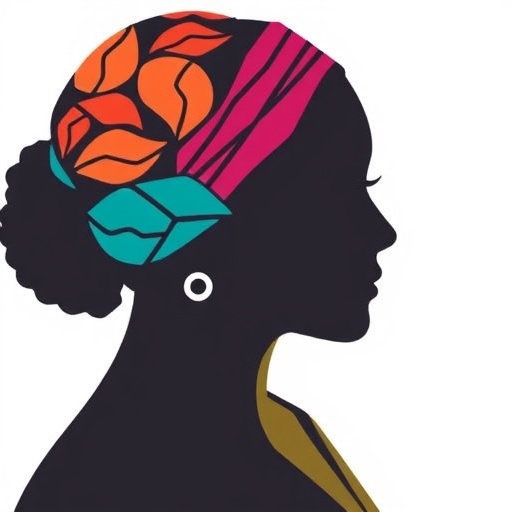In a groundbreaking study published in BMC Medical Education, researchers led by A.H. Haider and colleagues examine the career trajectories of alumni from the Aga Khan University Medical College over a span of 35 years. This comprehensive investigation not only sheds light on the professional outcomes of these medical graduates but also highlights significant gender disparities that have persisted in the field of medicine over this extensive period. As global health challenges evolve, understanding the dynamics at play within medical education can offer crucial insights into the broader implications for healthcare on a global scale.
The study meticulously explores the diverse career paths undertaken by graduates from the Aga Khan University Medical College, one of the leading medical institutions in South Asia. Through a detailed analysis of career outcomes, the researchers pinpoint a range of factors that contribute to the varied success experienced by these individuals. Their findings emphasize how the environment during medical training can influence a physician’s subsequent career trajectory, impacting not just individual professionals but also the health systems they serve.
A particularly striking element of the study is the examination of gender disparities within the cohort of graduates. Despite significant strides toward gender equity in medical education, the data indicate that female graduates experience different career outcomes compared to their male counterparts. The analysis of these disparities raises essential questions about the systemic barriers that persist even in high-caliber educational institutions and how these factors can shape the future of healthcare leadership.
The methodology employed in the study is robust, involving extensive data collection and statistical analysis. The researchers utilized longitudinal data that tracked alumni over the years, ensuring a comprehensive understanding of their career choices and achievements. This approach allows for an in-depth exploration of the impact of various factors, such as socio-economic status, geographic location, and personal circumstance, on career progression. It also highlights the importance of mentorship and networking opportunities available during and after medical training.
One of the study’s key findings is the correlation between leadership roles and gender. Female graduates are underrepresented in top leadership positions within healthcare settings, a trend that has implications for policy and practice in medical training. The research indicates that while female graduates tend to excel in clinical roles, their presence in administrative and leadership roles remains limited. This disparity calls for a reevaluation of how medical education prepares students for leadership and advocacy within healthcare.
Moreover, the results suggest that cultural and societal expectations play a significant role in shaping career outcomes for women in medicine. In many contexts, societal norms dictate the roles individuals, particularly women, should occupy within the professional realm. The barriers imposed by these norms can lead to a hesitance to pursue leadership roles, further perpetuating the cycle of underrepresentation. As the global health landscape continues to evolve, addressing these cultural barriers becomes increasingly crucial in fostering an inclusive and equitable healthcare environment.
The implications of the study extend beyond the personal experiences of the graduates. They resonate within the broader context of healthcare systems, highlighting the vital need for a diverse leadership that can address the multifaceted challenges faced in healthcare today. The presence of women in leadership roles not only enhances the decision-making process but also enriches the perspectives brought to the table, ultimately leading to better patient care outcomes.
To address these disparities, the authors advocate for targeted interventions within medical education. Training programs that incorporate leadership development, mentorship initiatives, and awareness of gender biases can equip graduates with the necessary skills and confidence to ascend to leadership positions. Furthermore, recognizing and dismantling systemic barriers within educational and professional environments will be key to cultivating a new generation of inclusive leaders in medicine.
As global health issues become increasingly complex, the demand for empathetic, culturally competent leaders is paramount. Educating medical professionals to be responsive to the needs of diverse populations is essential. This study highlights that enhancing gender equality within the medical workforce is not merely a moral imperative but a practical necessity for improving health outcomes on a global scale. By fostering an environment where all trained medical professionals, regardless of gender, can reach their potential, healthcare systems stand to benefit immensely.
In conclusion, the insights garnered from this long-term study of alumni from the Aga Khan University Medical College serve as both a call to action and a beacon of hope. While significant challenges remain in achieving true gender parity and equitable career outcomes in medicine, efforts to address these issues can pave the way for a more inclusive and effective healthcare system. As the field continues to evolve, the importance of understanding and rectifying gender disparities becomes even clearer. The findings from this research not only contribute to the academic discourse but also offer tangible solutions that can be implemented to foster equity in medical professions globally.
This comprehensive examination not only contributes to the academic field but also underscores the pressing need for action. With the potential to foster a new wave of equitable leadership in global health, the implications of these findings are profound and far-reaching. As we look to the future of medical education and practice, we must take heed of these lessons, striving towards a landscape where gender equality is not just an aspiration but a reality.
Subject of Research: Career outcomes and gender disparities among medical graduates from the Aga Khan University Medical College.
Article Title: Correction: From medical school to global health leadership: 35-year career outcomes and gender disparities from the Aga Khan University Medical College.
Article References:
Haider, A.H., Vaqar, M., Hussain Merchant, A.A. et al. Correction: From medical school to global health leadership: 35-year career outcomes and gender disparities from the Aga Khan University Medical College.
BMC Med Educ 25, 1162 (2025). https://doi.org/10.1186/s12909-025-07776-6
Image Credits: AI Generated
DOI:
Keywords: career outcomes, gender disparities, medical education, Aga Khan University Medical College, global health leadership.




